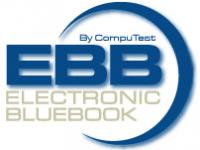Flipping the Classroom in Legal Research and Writing
There has been much talk lately in education circles about flipped or inverted classrooms, a teaching model that requires students to view presentations and lecture videos (direct instructional materials) before class and then use class time to work on assignments and active problem solving. According to several scholars, this teaching format enables professors to offer more personalized guidance to students, address specific issues during class time, and interact with students rather than lecturing. University of St. Thomas law librarians Megan McNevin and Valerie Aggerbeck experimented with the flipped classroom model this spring during their lawyering skills (legal research and writing) class for first-year law students. The re-design of the legal research class was a group effort, with McNevin taking the lead in developing and recording the lectures that students viewed prior to class and Aggerbeck developing the problems and assignments used during class and the skills mastery test used at the end of class.
After a short presentation of one of the class lectures, McNevin will:
- discuss the issues she encountered when trying to secure faculty buy-in for the new format
- provide best practices for developing and recording lectures
- compare the various hardware and software tools needed for such an endeavor (and explaining why she chose Adobe Presenter)
- encourage audience members to think of some of the issues they might face when trying to develop their own flipped classes and address those concerns
After providing sample in-class exercises that she used during the semester, Aggerbeck will:
- address the challenges she experienced when preparing the materials for use in class
- discuss student learning outcomes
- review how student reacted to the new format (via an informal, anonymous survey at the end of class)
- discuss the benefits and drawbacks of using this particular teaching method based on their personal experience
- explain why they believe the flipped classroom model works particularly well for library and research literacy
- describe how they plan to tweak things next year based on their results
McNevin and Aggerbeck will use a variety of tools to present the topic, including sample lecture videos and PowerPoint slides with key questions and information. They will provide audience members with their informal student survey questions, a sample in-class exercise, a research log template, and a bibliography on Flipped Learning and Teaching in the Law School Context. There will be time at the end of the presentation for audience questions.
Schedule info
- Login to post comments
-

Schedule Info and Session Details
| Time Slot: | Track: | Experience Level: | Room: |
|---|---|---|---|
| 21 June 10:30 - 11:30 | Librarian | Beginner | WCC 2019 |


